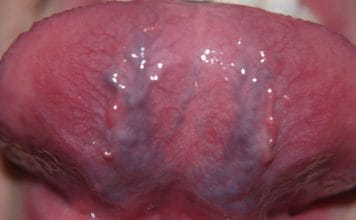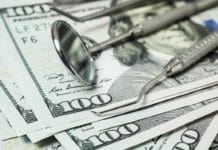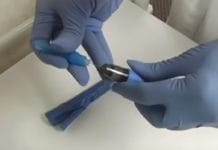When I went for a consultation about my wisdom teeth extraction in high school, my oral surgeon asked me if I wanted to schedule my surgery with the signs of the moon. I thought he was joking. What does the moon have to do with getting my wisdom teeth removed? I don’t read my horoscope or put stock in being a Pisces. Even though I took an astronomy class in college, I can’t point out most constellations or planets when they are visible in the sky. However, I’ve recently had a few patients asking me about this very topic.
I’ve heard tales of people quitting smoking cold turkey “by the signs” or holes being dug in the ground and ending up with less or more dirt depending on when the hole was dug. People claim to lose sleep and feel “backward” during a full moon. They say the moon has the power to pull the oceans in and create tides. So, is it possible that it can affect dental extractions and healing, or is this just a common folklore?
What the Almanacs Say
If you research this question, there seems to be a divide on how to classify the information. Some claim the moon’s supposed effects are purely astrological and not grounded on facts, whereas others claim that the physical properties of the moon scientifically affect humans and other terrestrial beings in the same gravitational way it affects the oceans.
Here in Northeast Tennessee, a widely trusted source for all things pertaining to the moon, weather, and predictions, in general, is the Farmers’ Almanac. When I researched the moon and dental extractions, I was surprised at the information I found.
According to the Almanac, certain days are better for baking, beginning a diet for weight loss or gain, breeding animals, coloring and cutting hair, and even getting married. For the next two months, the best days for dental care are January 13-14th and February 10th.1 Apparently, these are the dates that the moon is in the “waning phase.” According to a 2006 article in The Waterman and Hill-Traveller’s Companion, things are generally easier during the waning phase as opposed to the waxing phase, which makes things more complicated.2
What does this mean? Simply put, when the moon is waxing, it is growing in light before becoming full. When the moon is waning, it is becoming less illuminated after being full. Tradition has it that if you have dental extractions during the moon’s waning phase, you should expect less bleeding, faster healing, and little or no pain. If you schedule an extraction during the waxing phase, your chance of forming a dry socket increases along with bleeding and pain.
I looked back on the day I had my wisdom teeth extracted to see what phase the moon was in to test this theory. Because I had hardly any pain, bleeding, or discomfort, I assumed the moon was probably waning after reading about it in the almanac. Surprisingly though, the moon was actually waxing during my surgery, making it less likely that the moon affected my results at all.
Schedule Extractions Based on the Moon?
I scoured the internet for a hard and fast answer to my question: does the moon actually affect healing after dental extractions, or is it folklore? While I couldn’t find my answer directly, I learned a lot about how to explain this concept to my patients.
Should we schedule extractions solely during the moon’s waning phase? Probably not. If a patient has a tooth pulled during a full moon, will it be difficult to recover from? Not necessarily. While it is interesting − and somewhat possibly coincidental − that there seems to be a correlation of healing and moon waning, there just isn’t enough data to call it factual. Cases like mine seem to dismiss the validity of the moon’s effect on healing, but I can’t say for fact that there is no effect whatsoever.
I’m a firm believer that a patient’s chances of healing faster depend greatly on how they care for the extraction site afterward. Unfortunately, however, some patients will still develop a dry socket even with the utmost post-op care. Regardless of whether a patient schedules an extraction by the moon’s phases or not, encouraging a patient to care for their dental health meticulously should always be the first piece of advice on dealing with extractions.
While it is an interesting topic, I will never swear by the phases of the moon for scheduling dental extractions unless more evidence surfaces to prove it viable. Although I didn’t find the answer I was looking for, I found information on how to fully inform my patients of this “folklore” when asked about it again.
Now Listen to the Today’s RDH Dental Hygiene Podcast Below:
References
- Longacre, C. Best Days by Activity. The Farmer’s Almanac. 2019. Retrieved from https://www.almanac.com/bestdays/timetable
- Like pulling teeth. The Waterman and Hill-Traveller’s Companion. 2006. Retrieved from http://www.naturealmanac.com/archive/pulling_teeth/index.html














